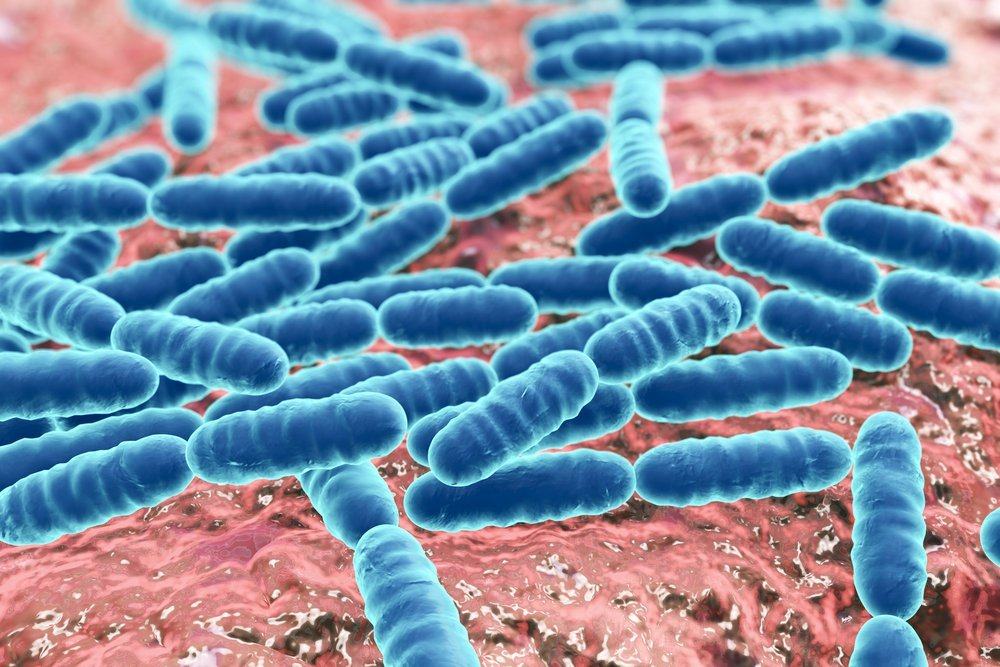Contents:
- Medical Video: 10 Healthy Tips to Improve Your Digestive System
- How digestion supports child development
- Why is the health of the child's digestive tract very important?
- The role of breast milk & solids to support the digestive health of children
- Cleanliness must not be forgotten
Medical Video: 10 Healthy Tips to Improve Your Digestive System
Did you know that only 20% of mothers in Indonesia are aware of the importance of children's digestive health? Do not let you become one of them. In this article you will find out how important it is to maintain the digestive health of children.
How digestion supports child development
Data shows that 55% of babies in Indonesia suffer from at least one digestive disorder, among them, 16.26% suffer from colic, 30% constipation (hard bowel movements) and the rest, are attacked by disorders of regurgitation (spit up). The three disorders, both are characterized by excessive crying in children.
The digestive process in general can be interpreted as a process of changing food ingredients in the body from large sizes with complex structures to simple substances that can be absorbed by the body. The digestive process itself has begun since food enters the mouth until it is finally absorbed by the intestine and the remaining waste is removed through the anus.
The digestive process occurs through mechanical processes (chewing, bowel movements), chemical processes (enzymes, acids, bile salts), and also aided by good bacteria found in the intestine. Digestion is said to be healthy if there is no gastrointestinal disturbance both in the form and function of the gastrointestinal tract. That is, the digestive tract can carry out the digestive process as described above properly.
Why is the health of the child's digestive tract very important?
Why is the gastrointestinal tract one of the systems that is very important to support children's growth and development? The answer is because nutrition is one of the most important factors to support the growth and development of children, so that a good digestive tract is needed to ensure good absorption of nutrients.
Without a healthy digestive tract, the process of digestion and absorption of nutrients cannot occur optimally so that it can hinder the process of child development. This is the reason why maintaining the health of the child's digestive tract is one of the keys to achieving optimal growth and development.
The role of breast milk & solids to support the digestive health of children
Unlike the adult digestive system that is perfect, the child's digestive system is still in the development stage so that nutrition for children must pay attention to the age of the child.
For babies under 6 months of age, breast milk is the best food for babies. Formula milk is given if breast milk is not available. At this age the baby may not get solid or semi-solid food, because the cernary is not ready to receive the food. Giving solid food that is too fast in children risks risking gastrointestinal problems and can interfere with absorption of nutrients.
For children over 6 months, complementary food for breastmilk (MPASI) has begun to be given to the baby slowly little by little. In a 9 month old baby, refined home food has begun to be given. At the age of 1 year, children can be given regular home food.
Do not give regular cow's milk, powdered milk to older children, or sweetened condensed milk to children under 1 year of age, because it can cause interference in the digestive tract and kidneys of the child. Choose formula milk that has been designed specifically according to the age of the child, so that the level of nutrition is in accordance with the needs and conditions of the child's digestive tract. In addition, choose formula milk that contains probiotics because it can improve the health of the digestive tract as well as the child's immune system.
Cleanliness must not be forgotten
In addition to choosing the right type of nutrition, for the digestion of healthy children, parents must pay attention to cleanliness. These include cleaning food ingredients and parental hands when preparing milk or food for children, as well as cleaning cooking utensils and cutlery (including pacifiers for babies).
Also pay attention to the correct cooking methods, such as how to prepare milk properly and the use of boiled water to make children's milk. If your child has symptoms of digestive problems such as diarrhea, dysentery, bloating, vomiting, constipation, and abdominal pain, contact your doctor immediately. With a healthy digestive tract, the absorption of children's nutrition will work optimally.












